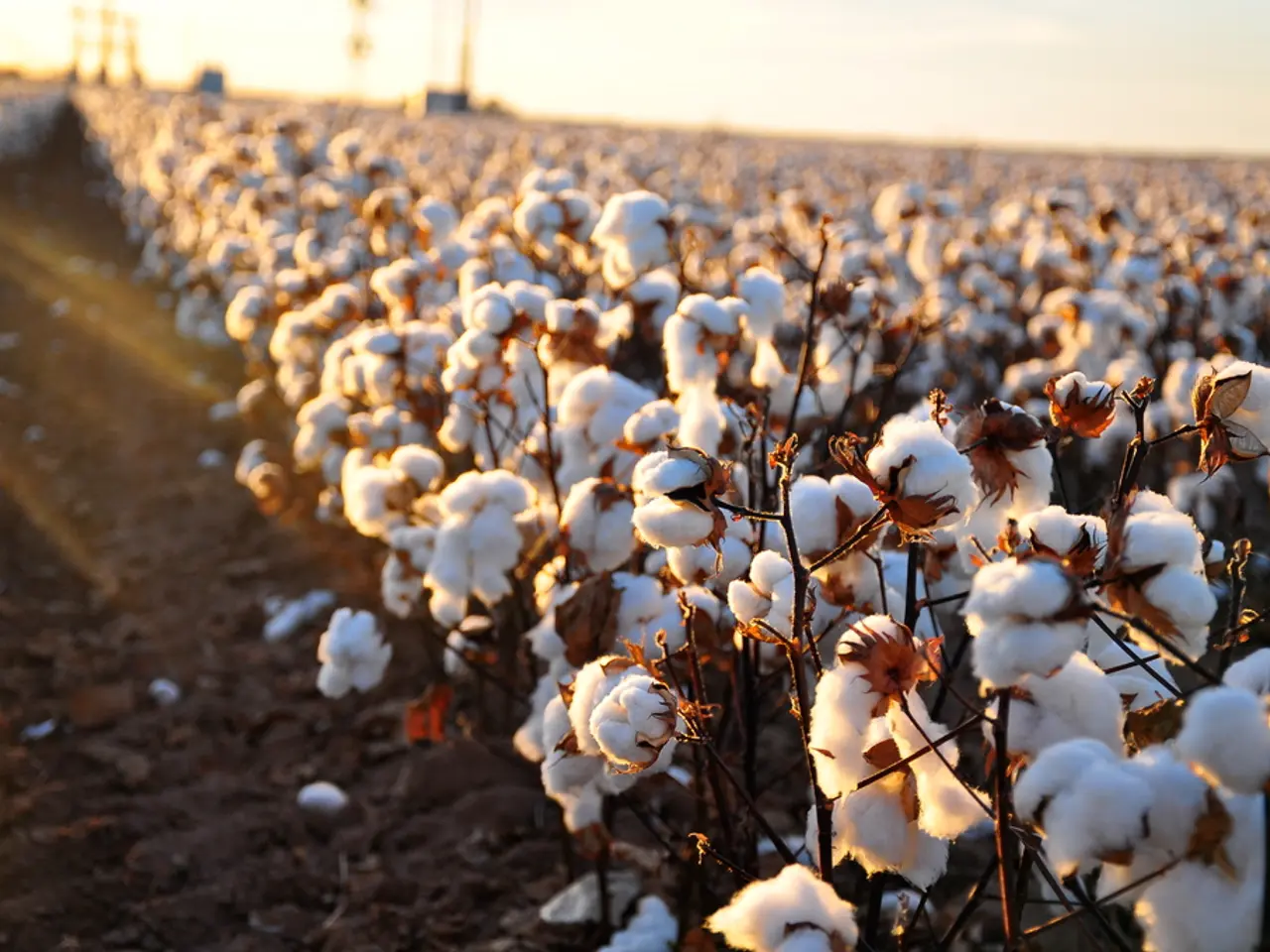Should Organic Linen Be the Norm?
In the realm of bedding, organic linen is steadily gaining popularity as a more sustainable and ethical option. This natural fibre, renowned for its breathability and moisture-wicking properties, offers a host of benefits for both the environment and the people involved in its production.
Opting for organic linen bedding is generally beneficial for several key reasons. Environmentally, it reduces chemical use, promotes healthier soil and biodiversity, boasts a lower carbon footprint, and generates less waste compared to conventional linen farming. Socially, organic linen farming and processing provide safer working conditions for farmers and textile workers, and supports sustainable farming communities.
A comparison with conventional linen reveals that organic linen farming and processing avoid harsh chemical treatments, use minimal or no synthetic pesticides and fertilizers, and require less water. Conventional linen, on the other hand, can be high in environmental pollution due to the use of synthetic chemicals.
The European Flax charter is a guarantee of local farming that respects the environment, uses no artificial irrigation, and produces zero waste and zero genetically modified organisms (GMOs). Linen bedding made from certified European Flax is inherently organic, offering a guarantee of authenticity and traceability.
Certifications such as European Flax and GOTS (Global Organic Textile Standard) ensure that organic linen duvet covers are processed using stringent environmental and social criteria. GOTS certification is a valid alternative to USDA organic certification in the United States.
It's important to note that much of the "organic" cotton exported from India is fake, as reported in an NYT exposé. In contrast, organic flax is a carbon-negative crop, acting as a carbon sink that locks away more carbon than is used in production. Organic linen bedding is strong and durable, lasting for many years, due to the lack of interference from artificial retting chemicals, bleaches, dyes, or softeners.
Chemical softeners used in non-organic linen production reduce the fibres' natural strength. These chemicals may also be harmful to health. In contrast, organic linen retains its natural strength, providing a durable and long-lasting bedding option.
In conclusion, choosing organic linen bedding is a meaningful way to contribute to environmental sustainability and social responsibility. It reduces environmental harm by avoiding synthetic chemicals, conserves water, and helps maintain healthy ecosystems. Socially, it protects the health of farmers and workers and supports more equitable farming practices. Whether you're seeking a better night's sleep or a more sustainable lifestyle, organic linen bedding offers a compelling choice.
- In addition to promoting a healthier sleep, organic linen bedding also aligns with the principles of health-and-wellness, as it avoids exposure to harmful chemicals used in non-organic linen production.
- For individuals interested in environmental-science and home-and-garden, opting for organic linen bedding is a practical choice as it reduces chemical use, promotes biodiversity, and boasts a lower carbon footprint compared to conventional linen farming.
- Furthermore, for those who value lifestyle and fashion-and-beauty that adhere to sustainable practices, organic linen bedding, certified by standards such as European Flax and GOTS, is an viable option that supports sustainable farming communities and ensures ethical labor conditions throughout the production process.




